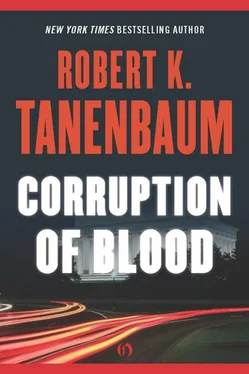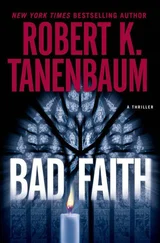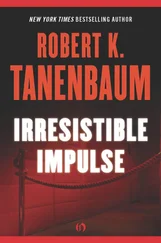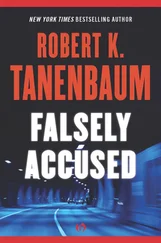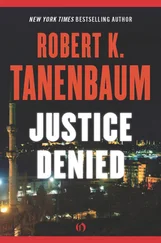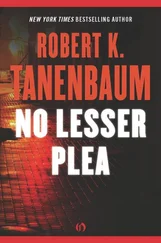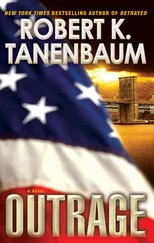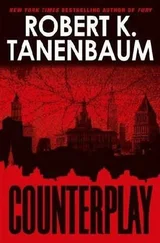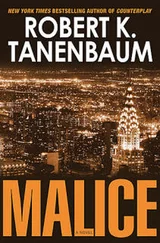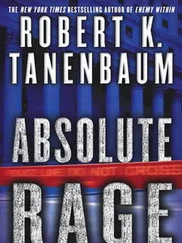Robert Tanenbaum - Corruption of Blood
Здесь есть возможность читать онлайн «Robert Tanenbaum - Corruption of Blood» весь текст электронной книги совершенно бесплатно (целиком полную версию без сокращений). В некоторых случаях можно слушать аудио, скачать через торрент в формате fb2 и присутствует краткое содержание. Жанр: Полицейский детектив, на английском языке. Описание произведения, (предисловие) а так же отзывы посетителей доступны на портале библиотеки ЛибКат.
- Название:Corruption of Blood
- Автор:
- Жанр:
- Год:неизвестен
- ISBN:нет данных
- Рейтинг книги:3 / 5. Голосов: 1
-
Избранное:Добавить в избранное
- Отзывы:
-
Ваша оценка:
- 60
- 1
- 2
- 3
- 4
- 5
Corruption of Blood: краткое содержание, описание и аннотация
Предлагаем к чтению аннотацию, описание, краткое содержание или предисловие (зависит от того, что написал сам автор книги «Corruption of Blood»). Если вы не нашли необходимую информацию о книге — напишите в комментариях, мы постараемся отыскать её.
Corruption of Blood — читать онлайн бесплатно полную книгу (весь текст) целиком
Ниже представлен текст книги, разбитый по страницам. Система сохранения места последней прочитанной страницы, позволяет с удобством читать онлайн бесплатно книгу «Corruption of Blood», без необходимости каждый раз заново искать на чём Вы остановились. Поставьте закладку, и сможете в любой момент перейти на страницу, на которой закончили чтение.
Интервал:
Закладка:
Robert K. Tanenbaum
Corruption of Blood
ONE
Nearly all Americans above a certain age can recall where they were the moment they learned of the assassination of John F. Kennedy. A much smaller number can recall where they were when they discovered who really did it.
One of these few was sitting in a dripping raincoat in a reading room on the fifth floor of the Lauinger Memorial Library at Georgetown University, in Washington D.C., on a rainy April day in the year 1977. On the wooden table before him was the sort of hinged cardboard box, the size and shape of a large book, that attorneys use to keep together all the material connected with some legal combat: a literal "case." Within it were several dozen typed pages, including a letter from a United States senator, several memoranda from the files of the Central Intelligence Agency and the Federal Bureau of Investigation, a thick packet of handwritten notes on lined yellow paper, two bankbooks, a small ledger, some photographs and clippings, a tape cassette, and a reel of 8-mm home movie film. There was also a sealed olive jar full of alcohol in which floated a chunk of human flesh.
The man shivered and stood to remove his sopping raincoat. A young woman, four seats down at the long table, glanced up at him from her thesis research (American Policy in Honduras, 1922-39) and then, a moment later, gave him a longer look, for the reading she was doing was tedious and he was not an ordinary-looking man.
He was very tall, for one thing, a bit over six-feet-five. His body, in its damp and rumpled dark suit, was broad-shouldered and rangy. He walked over to a display case and seemed to stare unseeing at a selection of colonial maps, and she could see that he walked with a slight limp.
His face, profiled, was moderately beaked and high cheekboned, the eyes having a slight oriental cast, and the sallow skin of his face and the lank dark hair, soaked and plastered tight against his skull, contributed to the general impression of the East-some Tatar or gypsy blood perhaps, she thought. You got to see all kinds in the Georgetown library.
She thought idly about who he might be. Not a bureaucrat. A bureaucrat would not have been caught in the rain. All bureaucrats in Washington carried those little spring-loaded folding umbrellas. Not military either. The hair was too long, and he was not old enough to have been retained on active duty with that limp; mid-thirties, she reckoned. Too obvious for a spy, with that size. A diplomat, perhaps, maybe from the Other Side. That was romantic enough. But an Eastern diplomat would have been dry; they went everywhere in cars with dark tinted windows. A professor, then? A professor might have forgotten his umbrella…
Suddenly, he turned and stared directly into her face. She immediately dropped her eyes to her monograph and tried to get back into the reading. When she looked again, sideways, surreptitiously, he was still staring at her, unsmiling. He had peculiar eyes, long, slightly slanted, and very pale hazel, almost yellow. She felt them etching away at the side of her head. After a few uncomfortable minutes, she gathered her papers together and left. No, not a professor at all, she concluded.
She was correct. The man was a lawyer, surely the most common profession in Washington, but one that had not occurred to the young woman in her idle guessing, because he was not a Washington lawyer. He was a homicide prosecutor named Roger Karp, and he had come from the New York District Attorney's Office some seven months ago to serve as counsel to the House Select Committee on Assassinations, specifically to run the investigation of the murder of John F. Kennedy. This investigation was complete, as far as Karp was concerned. A few minutes ago he had quit. He certainly would have been fired if anyone knew what he was doing with the stuff in the box. Legally, it belonged to the United States government, and he was breaking the law by holding on to it.
Karp sat back in his chair and watched the back of the retreating graduate student. He rubbed his face vigorously, as if to massage from it the malign expression that had spooked the woman, vaguely regretting having used on a perfectly harmless citizen the tactical-nuclear stare that had wrung confessions out of desperadoes in the Tombs, back in the city.
He had been paranoid, of course, but paranoia had become his natural state. He could not remember a time when he had not been beset by people trying to screw him personally or at least trying to stop him from doing his job. It had been bad enough at the DA, and magnitudes worse since his arrival in the capital.
He opened the box and spread the contents across the table, resisting an impulse to look furtively over his shoulder. He had taken the subway (as he still called it, although everyone else used the pretentious "metro") from the Federal Center stop near his office to M Street, and then had walked to Georgetown. Karp was a devotee of public transportation and he had never acknowledged that there were wide swaths of D.C. that had no subway stops at all. The storm had broken while he was riding on the shiny, toylike train, and he had been soaked during the absurdly long walk to the university.
He picked up the stack of yellow legal pads held together by rubber bands-his notes of the last seven months-and began a familiar activity: paging through the scribbled notes and making private marks here and there, recasting the information onto fresh sheets of paper, turning a mass of associated evidence into a story that he could tell to a jury. That he would never tell this particular story to an actual jury was at this point irrelevant. He wanted to make the complex material accessible and convincing to… whomever. God, maybe. It was both an irrational and a sacred act, like washing a corpse.
He worked quickly, because the material was familiar and he had kept good notes. He marked the various documents and other evidence with large circled letters, which he then keyed to the appropriate sections of his expository text. He also wrote a brief provenance for each item. It wasn't a legally acceptable chain of evidence, but it would have to do.
As he concentrated, his tongue crept out between his lips, a boyish trait. Any number of these survived in him, a remarkable fact given the atmosphere of grotesque cynicism in which he plied his trade. His friends called him Butch, a ridiculous name for a huge, dignified, grown man, but one that, oddly enough, suited him. In any case, he refused to answer to any other, as he had since the age of four.
Karp wrote very quickly, boyishly, of course, in a large round hand, the same school penmanship he had learned in the New York City public schools, in an era when they still functioned as educational institutions. He still got his hair cut in a barbershop run by an elderly Italian in a white smock; his inability to find one of these in the razor-cut, blowdry capital of the world was evidenced by the current length of his hair, which crept below his collar for the first time in his life. Karp had skipped the sixties.
He retained most of the Boy Scout virtues. He was courteous, loyal, brave, clean, and thrifty, passing on reverent. Many of the types, on both sides of the law, with whom he dealt in the New York criminal courts, took this as evidence that he was also a sucker, a mistake few made more than once.
Karp had, in fact, the best homicide prosecution record in the recent history of the New York DA's Office. He had tried over a hundred cases, losing not one. He was arguably the best person in the country to investigate the assassination of John F. Kennedy, assuming that anyone in charge really wanted to find out what happened in Dallas. As it turned out, they did not.
Putting down his pen, he riffled through a stack of legal bond, looking for a reference. A square yellow slip of paper dropped out onto the table. Karp picked it up and studied it. It was a telephone message slip dated seven months and three days earlier. The overture to this farce.
Читать дальшеИнтервал:
Закладка:
Похожие книги на «Corruption of Blood»
Представляем Вашему вниманию похожие книги на «Corruption of Blood» списком для выбора. Мы отобрали схожую по названию и смыслу литературу в надежде предоставить читателям больше вариантов отыскать новые, интересные, ещё непрочитанные произведения.
Обсуждение, отзывы о книге «Corruption of Blood» и просто собственные мнения читателей. Оставьте ваши комментарии, напишите, что Вы думаете о произведении, его смысле или главных героях. Укажите что конкретно понравилось, а что нет, и почему Вы так считаете.
